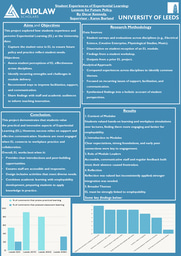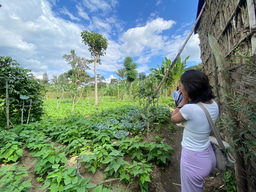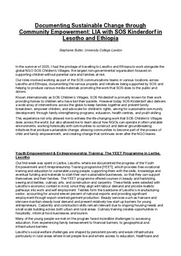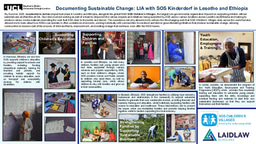Project Outline - Ecocide as a Weapon of War: How Russian Military Aggression in Ukraine Is Creating a Long-Lasting Ecological Crisis in Eastern Europe
Abstract
This research will analyze the ecological and economic consequences of the ongoing Russian-Ukrainian war, focusing on ecocide as a weapon of war and its global implications for Ukraine and its neighboring Eastern European countries. The research intends to discuss an often-overlooked yet crucial topic of environmental damage, including but not limited to water contamination, soil degradation and air pollution, which results in lasting economic and geopolitical repercussions.
The research will be conducted using a mixed-methods approach, incorporating both qualitative and quantitative analysis, while also providing an interdisciplinary context by combining environmental studies, economics, politics, and sociology. Quantitative analysis will include cost-benefit and trend analysis based on available pre-war and post-war environmental and economic data, using Stata and Python for data processing. The qualitative part of the research will be conducted by gathering insights through interviews with environmental economists and policy experts. Data sources will include environmental reports from organizations such as the UNEP and Ukraine’s Ministry of Environmental Protection, as well as international air and water quality indices.
The study will be conducted in Warsaw, Poland, which currently serves as a central hub for displaced Ukrainian professionals. Poland is one of the Eastern European countries that has been significantly impacted by the war from a socio-economic perspective. Key areas of analysis will include the aftermath of the Kakhovka Dam destruction, risks associated with nuclear plant attacks, and the disruption of Ukraine’s agricultural supply chain.
In addition, this research aims to quantify environmental damage, assess its economic implications, and promote international discourse on ecocide as a war crime and a component of genocide.
Introduction
The Russian-Ukrainian War is an ongoing armed conflict started by the Russian government, which invaded the territory of the Ukrainian Donbas after the occupation of the Autonomous Republic of Crimea in March 2014. The conflict included the annexation of Crimea by Russian Federation (2014) and the Donbas War (2014-present) and was recognized as a “war” by the international community after the deployment of Russian troops and missile attacks across the entire territory of Ukraine from the night of February 24, 2022.
War destroys not only a human-made infrastructure but also alters the ecosystems of the affected regions. Any armed conflict causes large-scale and long-lasting environmental degradation, known as ecocide, which is one of the most powerful weapons of war. Ukraine serves as an example of how countries in Eastern Europe, particularly Poland, Slovakia, Belarus, and even Russia itself, will have to spend millions of dollars to help preserve or restore their ecosystems from the damage caused by the Russian Federation.
19% of Ukrainian territory is being completely occupied and 55% of Ukrainian natural resources, including but not limited to land, water, and air, are contaminated with mines, toxic chemicals and heavy metals. Hundreds of thousands of square kilometers of agricultural land are being bombed, causing significant destruction to the soil and groundwater contamination.
The Ministry of Environmental Protection and Natural Resources of Ukraine estimated that the Russian army has already caused damage to Ukraine’s natural environment amounting to 2 trillion hryvnias (≈67 billion CAD). In addition, destroyed Russian equipment has generated approximately 850,000 tons of waste, releasing more than 83,000 tons of CO2 into the atmosphere.
Being one of many Ukrainians who had to leave their homeland and seek refuge elsewhere, I am deeply connected to the topic of this research. Nevertheless, I am eager to approach this project from a data-driven, unbiased perspective and explore more the area of ecocide as a concept during wartime, as well as its impact on the socio-economic and ecological positioning of Ukraine and its neighboring countries on the global arena. In addition, I aim to assess the financial damage on the environment caused by the war.
Research Objectives & Questions
Primary Objective:
- Determine how the Russian-Ukrainian war is impacting soil degradation and water contamination in the Donbas, Kyiv, Northeastern, Southern and Northern regions of Ukraine, focusing on agriculture and economic stability.
Secondary Objectives:
- Assess how environmental harm can be financially quantified in war-affected regions of Ukraine, using publicly available reports and data.
- Determine the means through which ecocide is executed in the Central and Eastern Ukrainian regions, most impacted by the war, and explore the case for recognizing environmental damage as a war crime and a component of genocide.
Methodology
As a secondary data analysis, I plan to review relevant literature, such as books and articles, as well as scientific reports from governmental structures, and analyze case studies on war-related ecocide in the areas of interest, specifically the Eastern and Central parts of Ukraine, which have faced significant financial and environmental damage since the beginning of the war. I also want to examine the economic impact of the war in the form of financial aid sent to Ukraine by its allies.
I intend to conduct the research using a mixed-methods approach, incorporating both qualitative and quantitative analysis.
Data Collection:
I will analyze publicly available environmental reports from organizations such as the United Nations Environment Programme, the European Environment Agency, the Ministry of Environmental Protection and Natural Resources of Ukraine, and existing research on water quality degradation conducted by the National University of Life and Environmental Sciences of Ukraine. A comparative analysis of pre-war and post-war pollution data from European air quality monitoring networks and water quality indexes in rivers such as the Dniester, Dnipro, and Pripyat, which flow into neighboring countries, will help assess ecological damage.
I plan to examine economic reports on agricultural losses, trade disruptions, and the financial costs of environmental destruction. Ukraine is often referred to as the “breadbasket of Europe”; therefore, the effects of soil contamination on food security and grain exports to Eastern European countries must also be analyzed.
In addition, I aim to investigate the environmental consequences of the destruction of the Kakhovka Dam, which flooded the Great Meadow and created the Kakhovka Reservoir, making it the second-largest reservoir in Ukraine by area and volume, resulting in the extinction of several endangered species of Ukrainian flora and fauna.
Furthermore, attacks on Ukraine’s nuclear power plants (e.g., Zaporizhzhia) must be examined, as they pose radiation threats not only to Ukraine’s neighboring countries but to the entire world. Such a disaster could potentially surpass the scale of the Chornobyl explosion in 1986.
Quantitative Analysis:
Using cost-benefit analysis, I aim to estimate the financial damages caused by environmental destruction and compare them to military expenditures. Comparative economic models will be employed to assess the cost of environmental damage across multiple Eastern European nations. Statistical trend analysis will be used to identify patterns of environmental degradation through time-series data from before and during the war. By applying my knowledge of Python and the statistical software Stata, I plan to gather, store, and analyze data on water pollution (e.g., Water Quality Index, Water Pollution Index) and soil degradation (e.g., Soil Degradation Index, Soil Erosion Risk Indicator, Soil Quality Indices, Land Degradation Indices).
Qualitative Analysis:
I am planning to conduct in-person interviews with environmental economists to gather their professional insights and support the data from the quantitative analysis. I also hope to connect with senior governmental officials and policymakers to utilize survey data from public sources and better understand the socio-economic consequences of the ecocide, either by conducting interviews or distributing Google Forms surveys with open-ended questions.
Training/ Certifications Needed
No certifications or formal training are required prior to or during Summer 1.
Research Location
I will be conducting my research outside of Canada, in Warsaw, Poland. While my original plan was to conduct research in Ukraine, safety concerns make this unfeasible. Poland presents a viable and strategically appropriate alternative. It has experienced considerable ecological and economic consequences of the war in Ukraine, making it a relevant and accessible location for data collection. In addition, Poland has become a central hub for hundreds of thousands of Ukrainians, including individuals such as policymakers, scientists, and economists, thereby providing enhanced access to key contacts and potential interviewees for my study. If necessary, archival documents from Ukraine can be reliably and efficiently delivered to Warsaw via buses or trains.
Research Ethics Board
My project will potentially require Research Ethics Board (REB) approval if interviews are conducted.
Resources & Support Needed
No additional resources or support are needed for this project, apart from the submitted budget and weekly check-ins with the research supervisor.
Timeline
Pre-Research Period:
- April – May: Start contacting potential interviewees about their interest in participating in interviews.
- May 1 – May 14: Review the articles and books provided by the research supervisor to be better equipped with econometric tools and deepen my understanding of the material.
- May 14 – May 31: Review my coding and econometrics classes to refresh my knowledge of Python and Stata.
- June 1 – June 15: Begin gathering and sorting relevant literature and data. Organize documents and create an Excel document with all required deliverables and deadlines to track my progress.
Week 1: Conduct preliminary research, gathering publicly available environmental and economic articles and reports.
Week 2: I will conduct a comparative environmental analysis of pre-war and post-war data, with a focus on water contamination in major rivers such as the Dniester, Dnipro, Pripyat, and the Black Sea, as well as soil degradation indicators across affected regions. I will also assess the environmental impact of the destruction of the Kakhovka Dam, including its effects on surrounding ecosystems. During this week, I will begin analyzing relevant datasets using Stata and Python.
Week 3: I will analyze the economic effects of environmental damage, such as agricultural losses, trade disruptions, and impacts on food security. I also aim to examine the risks posed by attacks on Zaporizhzhia’s nuclear power plant.
Week 4: I will use cost-benefit analysis and comparative economic models to estimate the value of environmental damage across Ukraine and neighboring Eastern European nations. These calculations will be supported by trend analysis of time-series data. In addition, I aim to start conducting interviews this week.
Week 5: Finalize the quantitative and qualitative analysis and begin working on the report.
Week 6: Summarize findings, finalize research report. I will also create a poster and presentation slide deck to demonstrate the research findings.
Post-Research Period: I will review all materials with my research supervisor and finalize all deliverables for submission.
Potential Impact & International Focus
This project exhibits both an international and interdisciplinary focus, concentrating on multiple fields of study to assess the environmental damage caused by the war. The study bridges environmental studies, economics, and sociology to provide a holistic understanding of the impact of ecocide on Ukraine and its neighboring Eastern European countries. By considering the impacts of transnational water pollution and soil degradation, which in turn contribute to the disruption of existing supply chains and pose risks of food insecurity, this project highlights the broader ecological damage and provides the international context of the research.
The potential impacts of this project are the following:
- Quantification of ecological damage in Ukraine and Eastern Europe.
- Economic cost assessment of environmental destruction.
Often, ecological damage is overlooked as governments and media focus on quantifying human casualties and national infrastructure losses for post-war restoration. While these topics are undeniably important, research on environmental degradation illustrates how international communities can also be affected by war. It is normalized to consider only the countries directly involved in conflict when referring to “war-affected” zones. However, this research aims to prove that ecocide in one country can alter the ecosystem of an entire region, extending far beyond Ukrainian borders. By quantifying ecological damage and connecting it to broader economic repercussions, the research opens a discourse for international advocacy and accountability, as well as policy development. It provides a precedent for considering ecocide as a war crime and a component of genocide.
References
- Commission on Security and Cooperation in Europe. (2024, July 16). Russia’s ecocide in Ukraine: Environmental destruction and the need for accountability. https://www.csce.gov/briefings/russias-ecocide-in-ukraine-environmental-destruction-and-the-need-for-accountability/
- Millan, L. (2022, June 10). Ukraine post-war reconstruction may have green inspiration from Europe. Bloomberg. https://www.bloomberg.com/news/articles/2022-06-10/ukraine-post-war-reconstruction-may-have-green-inspiration-from-europe
- Averin, D. (2022, May 19). Las repercusiones medioambientales de la guerra en Ucrania [The environmental repercussions of the war in Ukraine]. Green European Journal. https://www.greeneuropeanjournal.eu/las-repercusiones-medioambientales-de-la-guerra-en-ucrania/
- Faria, G. (2022, June 28). Scorched earth: The catastrophic environmental costs of Russia’s invasion of Ukraine. Radio Free Europe/Radio Liberty. https://www.rferl.org/a/ukraine-environmental-catastrophe-russia-invasion-ecosystems/31919411.html
- Ministry of Environmental Protection and Natural Resources of Ukraine. (2022, March 10). Інформація про наслідки для довкілля від російської агресії в Україні 24 лютого – 9 березня 2022 року [Information on the environmental consequences of Russian aggression in Ukraine from February 24 to March 9, 2022]. https://mepr.gov.ua/informatsiya-pro-naslidky-dlya-dovkillya-vid-rosijskoyi-agresiyi-v-ukrayini-24-lyutogo-9-bereznya-2022-roku-2/





Please sign in
If you are a registered user on Laidlaw Scholars Network, please sign in